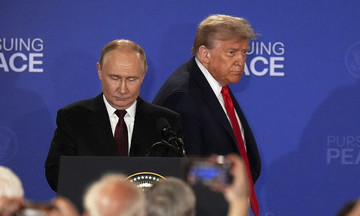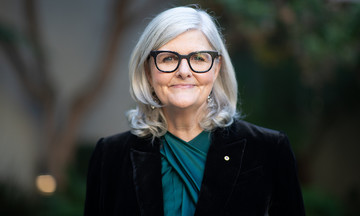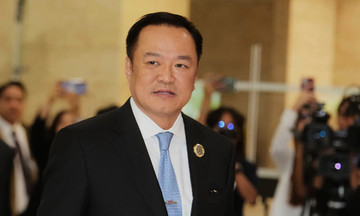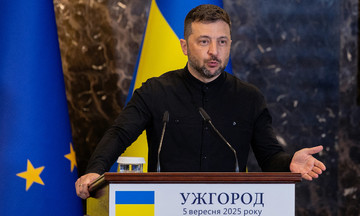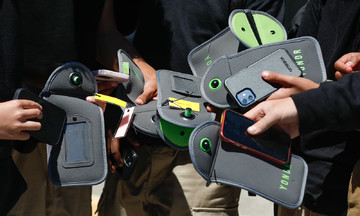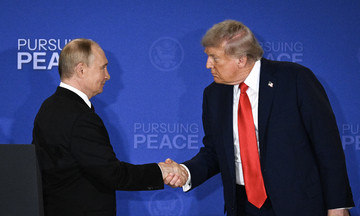311 out of 490 Thai legislators elected 58-year-old Anutin Charnvirakul as prime minister on 5/9, replacing Paetongtarn Shinawatra, who was ousted by the Constitutional Court in late August.
Anutin, the leader of the Bhumjaithai Party (BJT), will become Thailand's 32nd prime minister, ending months of political turmoil. This marks the pinnacle of Anutin's career, a construction tycoon who entered politics and steadily climbed the ranks.
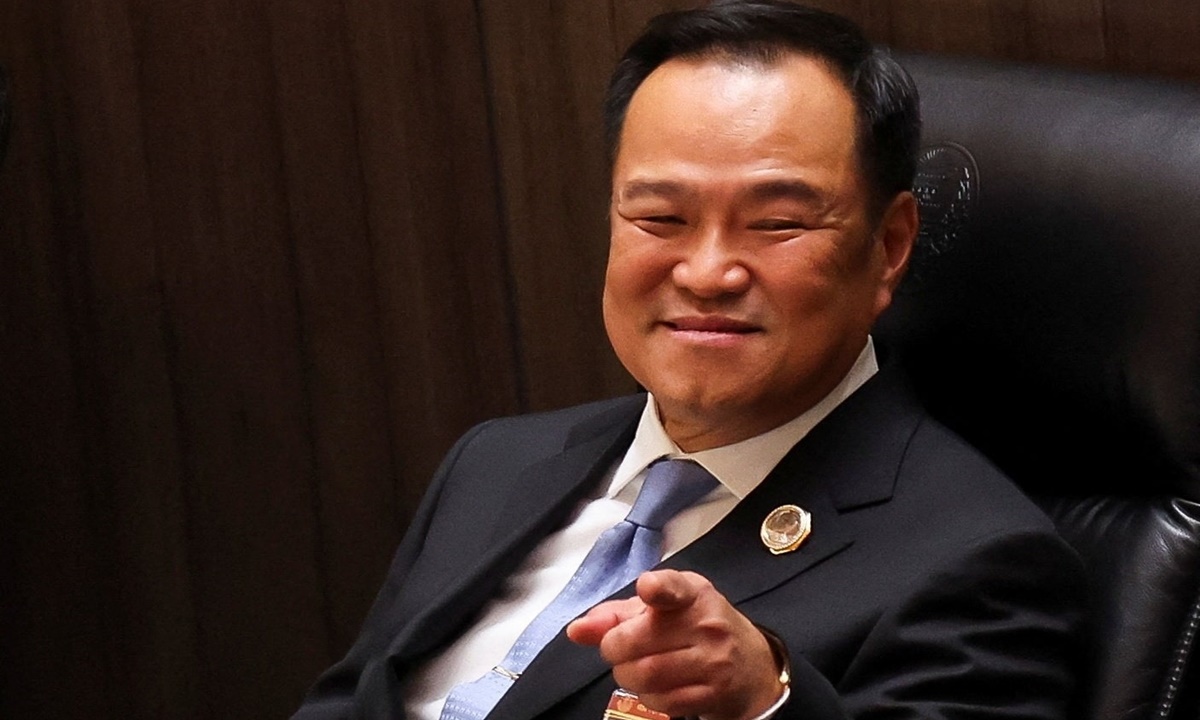 |
Anutin Charnvirakul attends the vote for the new prime minister at the parliament in Bangkok, Thailand, on 5/9. Photo: Reuters |
Anutin Charnvirakul attends the vote for the new prime minister at the parliament in Bangkok, Thailand, on 5/9. Photo: Reuters
Anutin hails from a prominent family. He is the son of Chavarat Charnvirakul, a former interior minister under Prime Minister Abhisit Vejjajiva. His family is of Thai-Chinese descent, with ancestors from Guangdong.
He graduated with an engineering degree from Hofstra University in the US and later studied commerce and accounting at Thammasat University in Thailand. His background in economics, engineering, and business administration prepared him to lead Sino-Thai Engineering and Construction (STECO), the leading Thai construction firm he inherited from his family.
STECO has undertaken numerous major government projects, including Suvarnabhumi Airport in Bangkok.
In 1996, he entered politics as an advisor to then-Foreign Minister Prachuap Chaiyasan. He served as deputy minister of health from 2004 to 2005 and deputy minister of commerce in 2004.
When the Thai Rak Thai Party (TRT) was dissolved in 2006, Anutin was among 111 former executive members banned from politics for five years, until 30/5/2012, preventing him from holding any political office.
During this ban, Anutin returned to construction, becoming STECO's chairman in February 2012. That same year, the founder of the conservative BJT party, Newin Chidchob, announced his retirement. A close associate of Anutin, Newin nominated him to lead the party.
At the time, billionaire Anutin was a major BJT donor. He joined the party after the political ban lifted and was elected leader on 14/10/2012.
During the 2013-2014 Thai political crisis, BJT members supported the People's Democratic Reform Committee's (PDRC) anti-government movement. Anutin, in China at the time, was displeased with this decision. A key part of the PDRC's platform was opposing former Prime Minister Thaksin Shinawatra's influence, but Anutin had close ties with him.
Before the 2019 general election, the BJT re-elected Anutin as leader in October 2018, making him their prime ministerial candidate. The new electoral system under the 2017 constitution was seen as benefiting the BJT and other conservative parties. From a mid-sized party, the BJT grew into a major force, claiming three million members by the end of 2018.
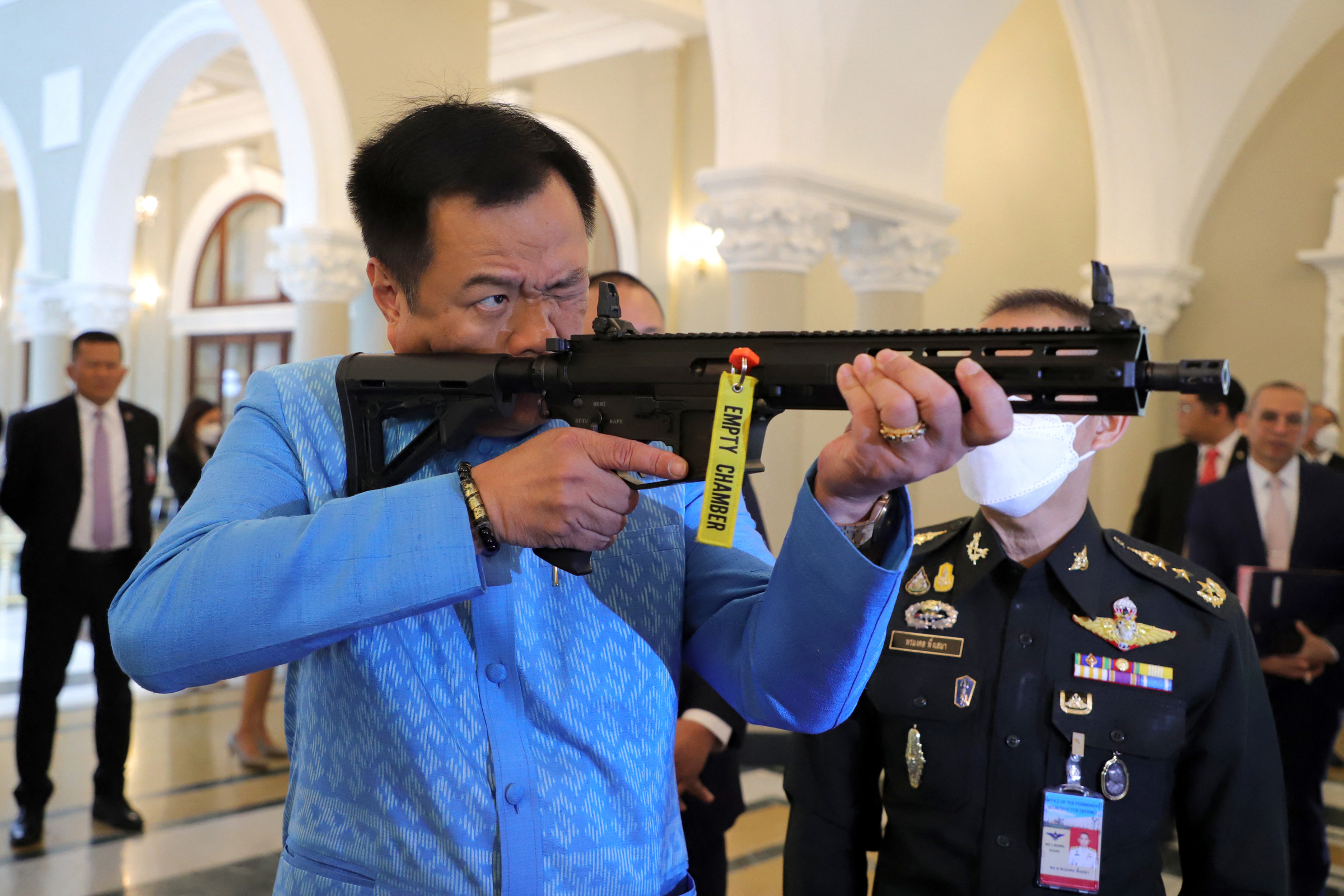 |
Anutin attends a defense exhibition in Bangkok in 2023. Photo: AFP |
Anutin attends a defense exhibition in Bangkok in 2023. Photo: AFP
The BJT won 51 parliamentary seats. Anutin told supporters the BJT was ready to form a coalition with any party loyal to the monarchy, capable of bringing prosperity, and committed to avoiding conflict.
Pheu Thai Party secretary-general Phumtham Wechayachai said Pheu Thai was willing to nominate Anutin as prime minister, though their initial coalition plans didn't include the BJT. However, Prayut Chan-ocha was re-elected prime minister, with Anutin as deputy prime minister and minister of health.
During the Covid-19 outbreak, Anutin made derogatory remarks about foreigners on X (formerly Twitter). He initially denied the account was his, but later apologized.
Anutin championed medical cannabis. In May 2022, he announced the Ministry of Health would give one million cannabis plants to Thai households for cultivation without licenses. He served as deputy prime minister and interior minister from September 2023 until resigning on 19/6/2025.
Anutin collects Buddhist amulets and enjoys meditation and prayer. He is passionate about street food, stating, "Eating has always been a great joy in my life." In a 2012 Bangkok Post interview, he mentioned his regular newspaper reading and fondness for restaurant reviews.
Nicknamed "Noo" (mouse in Thai), Anutin presents himself as down-to-earth. On social media, he often appears in T-shirts and shorts, cooking while playing 1980s Thai pop music on the saxophone or piano.
Flying became another hobby during his political ban. By the time it ended, he owned four planes and launched AC Aviation, a private jet charter company. He also owns Khanong Phra private airport in Pak Chong, the westernmost district of Nakhon Ratchasima Province, in northeastern Thailand.
Anutin often flies his family to dine far from Bangkok. He also pilots planes for the Thai Red Cross. In October 2022, he flew medical personnel to Udon Thani for organ donation support.
With backing from the People's Party and his coalition, Anutin secured a landslide victory in the 5/9 parliamentary vote. Many wonder if he can end the political turmoil and what changes he will bring.
According to Mark S. Cogan, associate professor of peace and conflict studies at Kansai Gaidai University, Japan, Thailand under Anutin will likely avoid Pheu Thai's mistakes, focusing on infrastructure and regional partnerships. Cogan suggests Anutin's administration might replace populist policies like Pheu Thai's digital wallet program with a more pragmatic agenda.
Napon Jatusripitak, an expert with the Thailand Studies Programme at the ISEAS-Yusof Ishak Institute in Singapore, believes cannabis regulation could be a policy priority under Anutin. As health minister, Anutin promoted cannabis legalization, which the Pheu Thai government tried to reverse.
Given Anutin's pro-royalist stance, the controversial lese-majeste law is unlikely to be reformed. Overall, Napon Jatusripitak believes Anutin's government may lean towards decentralization, increasing local government power or budgets to build support for future elections.
Vu Hoang (Bangkok Post, AFP, Reuters)



